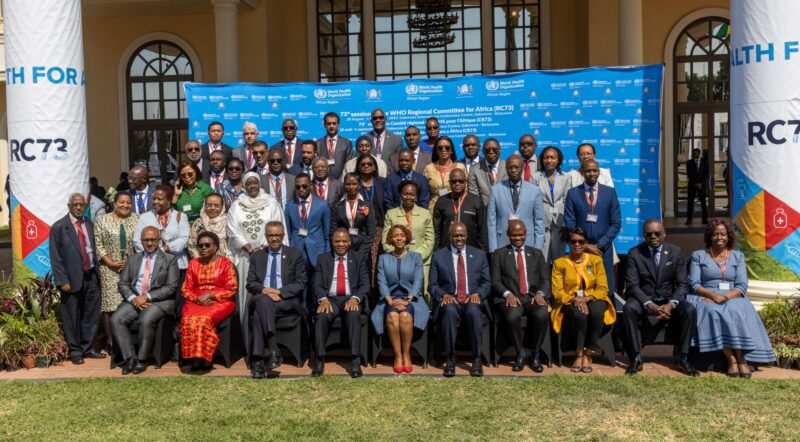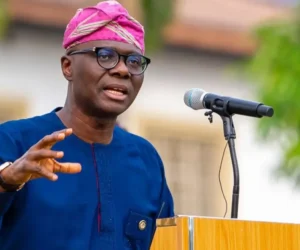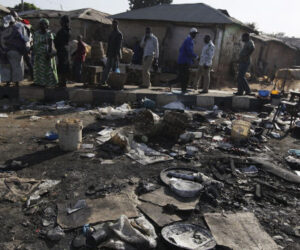1
LAGOS – African ministers of health gathering in the Zambian capital Lusaka today opened the Seventy-fifth session of the World Health Organization (WHO) Regional Committee for Africa, the highest decision-making body on health on the continent.
The ministers from the 47 countries of the WHO African Region, meeting from 25 to 27 August 2025, will deliberate on measures to address challenges as well as endorse key resolutions to improve and promote people’s health.
Opening the meeting, Zambia’s President Hakainde Hichilema pointed out that lessons from the COVID-19 pandemic were crucial in “strengthening health diplomacy to address inequalities” and called on regional leaders to position health “as a driver of regional trade and industrialization”, as well as to harmonize public health regulations across countries.
The president also called for “collaboration and a commitment to humanity in making decisions that enhance health and well-being across the region.”
On his part, Zambian Minister of Health Dr Elijah Muchima called for united action and deeper collaboration to address the continent’s health challenges.
“The complexities of today’s health threats demand that we stand united. No single nation can overcome these challenges in isolation,” said Dr Muchima. “We must deepen regional collaboration, share best practices, harness African expertise and innovation, and build long‑term resilience across borders. The outcomes of this Session will guide our collective action towards a more secure, equitable, and sustainable future for all.”
WHO Director-General Dr Tedros Adhanom Ghebreyesus said that the Seventy-fifth session of the WHO Africa Regional Committee “comes at a vital time for the continent and WHO as we chart a more sustainable future for the health of all people in Africa.”
“WHO is working in lockstep with African nations to overcome the financial and security challenges many face and to capitalize on the great potential Africa offers in health. Our goal is clear: to support our Member States in Africa in their drive to build robust national health systems, built on self-reliance, efficacy and a commitment to deliver health for all,” said Dr Tedros.
Faced with a challenging global financial landscape, WHO Regional Director for Africa, Dr Mohamed Janabi, underscored the importance of collaboration among countries to lead the transformation of the health architecture to be “accountable, transparent and responsive to African realities”, and called for robust health systems to serve the needs of the people.
“We must reframe health not as a cost, but as a cornerstone of prosperity,” said Dr Janabi. “We must build systems that are efficient, inclusive and sovereign and we must place people – especially the most vulnerable – at the centre of every policy, programme and partnership.”
Over the next three days, the ministers will deliberate on priority issues. They will adopt a resolution to fast-track progress on oral health, long neglected despite affecting millions, to ensure improved services across the region by 2030. Delegates will also debate how to end chronic blood shortages that endanger mothers, children and patients with sickle cell disease, with a new plan to modernize supply systems and expand voluntary donations.
The meeting will consider strategies to expand access to rehabilitation services, which remain unavailable to two-thirds of Africans in need, and to transform care for women, children and adolescents—an area where the region still accounts for 70% of global maternal deaths. Ministers are expected to review proposals to accelerate progress against malaria, which continues to claim thousands of lives in Africa, and to close the continent’s critical health workforce gap, currently less than half the global standard.
Health security will also be under the spotlight, with new plans to strengthen early detection and crisis preparedness in a region that recorded more than 250 public health events in 2024 alone.
Decisions taken in Lusaka this week are expected to set Africa’s health agenda for the future, laying the foundations for stronger systems, healthier communities, and a more resilient continent.








